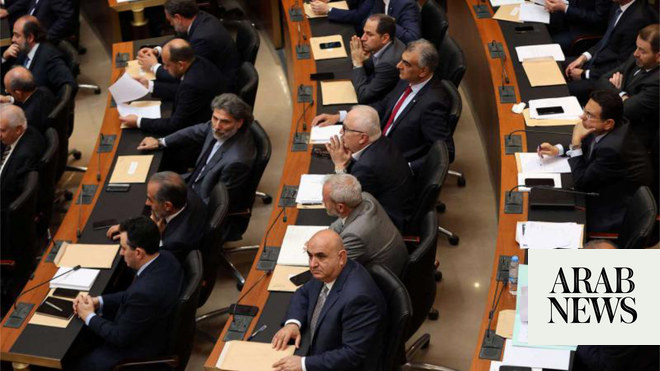
Lebanon’s Parliament approval to advance the date of the parliamentary elections to March 27, 2022, raises some questions about the impact of the decision on the electoral process and the number of new voters.
However, the parliament’s law requires the signature of President Michel Aoun, who still opposes the new amendments.
In remarks to Asharq Al-Awsat, MP Salim Aoun said that the president was studying the appropriate step to be taken in this regard, noting that if he signed the law, the parliamentary bloc of the Free Patriotic Movement (FPM) would challenge it.
The CEO of Statistics Lebanon, Rabih Haber, told Asharq Al-Awsat that bringing the elections date forward “greatly affects the electoral process, because the electoral machines will not be able to complete their work.”
He asserted that advancing the date of the elections would deprive a large segment of people, who are about to reach 21 years-old, from the right to vote.
This is why the head of the FPM, former Minister Gebran Bassil, strongly opposed the amendment, according to Haber.
“Around 200,000 people will be deprived of voting, and this number is very big,” Haber said, adding that official figures and data would not be released before the voters’ lists are completed.
However, Mohammad Shamseddine, researcher at Information International, told Asharq Al-Awsat that the legal period for holding the elections falls within the sixty days preceding the end of Parliament’s term on May 21.
“Therefore, we cannot talk here about the elections being advanced; it’s an amendment to the deadlines,” he explained.
Shamseddine added: “There will be no real impact on the ground if the date of the elections is brought forward. This will not affect the results of the elections.”
A statistical study of the numbers of voters conducted by Statistics Lebanon in 2018 showed that 75.31 percent of new voters (493,220 people) were Muslims, compared to 24.68 percent (161,660) of Christians.
According to Statistics Lebanon, Muslim voters constitute the majority in the districts of the governorates of the South, Nabatiyeh, Bekaa, and Akkar, while the districts are divided in the governorates of Mount Lebanon, North and Beirut. Muslim voters form the majority in Beirut’s second electoral district, the North’s second district, the Baabda District and the Chouf-Aley constituency, while Christian voters form a majority in Beirut’s first district and the North’s first district, as well as in the constituencies of Metn and Kessrouan-Jbeil.
Haber asserted that any change of the date would have an impact on the elections. He added that the electoral parties of the civil movement were still preparing their lists. “The political forces are also not ready,” he underlined.












